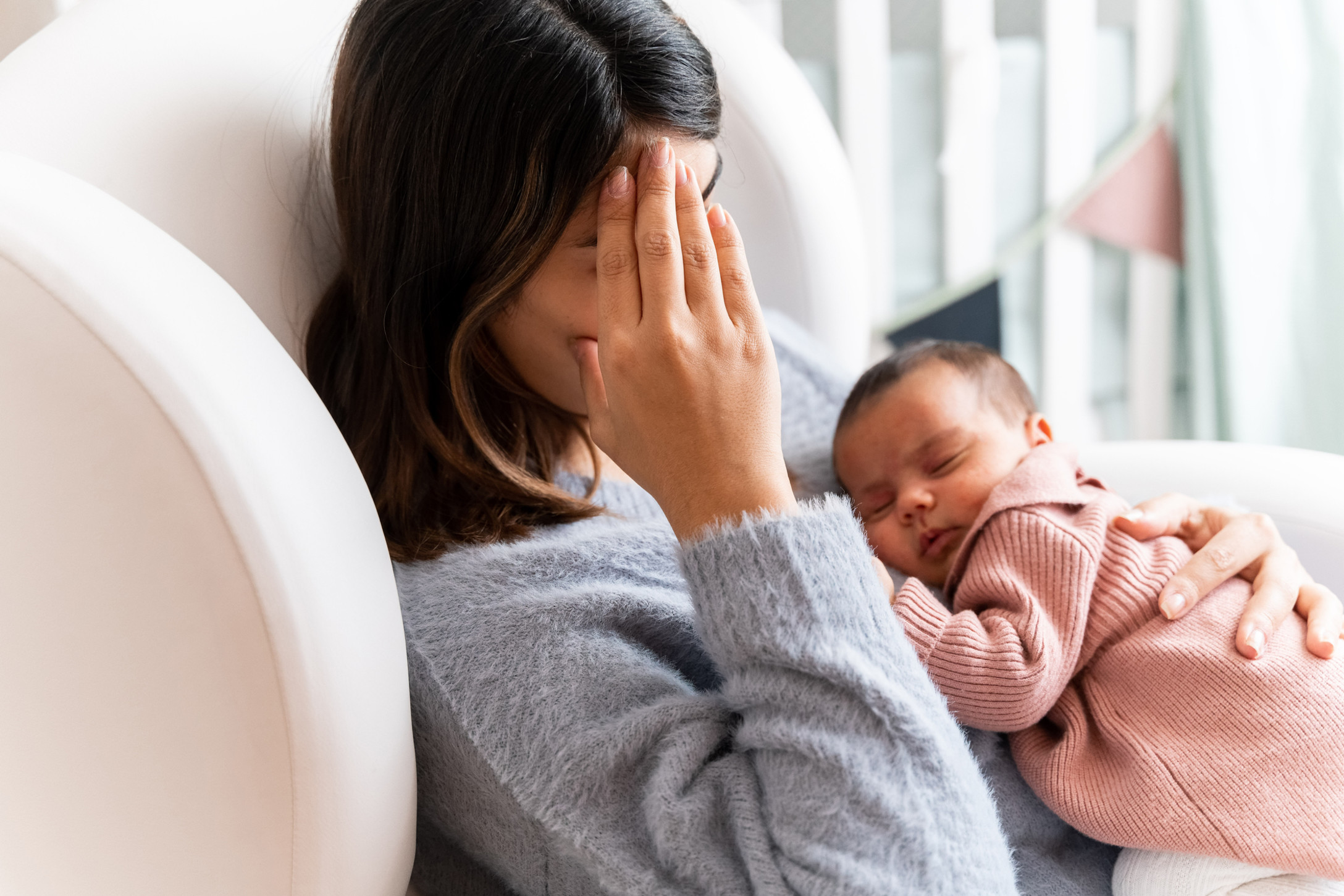
Things were different 10 years ago. The conversations about mental health that are prioritized now were just starting to take hold — especially those related to moms. I was so excited about becoming a mom for the first time, that the feelings I started to have once we got home from the hospital really caught me off-guard. Once the flow of visitors slowed down, and eventually stopped altogether, reality hit. I felt overwhelmed, like I was in a constant state of fear.
I was afraid to get it all wrong, and when I looked at my baby, I remember thinking, “I’m going to fail this child.” So determined to “get it right,” I refused most help from my ultra-attentive husband and my mom who stayed with us for a month after my son was born. I did all of the nighttime nursing sessions and middle-of-the-night diaper changes on my own — not because they didn’t want to help, but because I thought that if I could maybe handle those things on my own, I might actually turn out to be a good mom. Needless to say, I also reached a desperate state of sleep deprivation pretty quickly, and that certainly didn’t help matters.
I could tell I wasn't depressed
I genuinely didn’t feel sad during this time. I could tell I didn’t have postpartum depression, but I knew something wasn’t right. I felt crushed by the weight of the responsibility of motherhood and constantly imagined worst-case scenarios involving myself and my baby.
I was so overwhelmed by my need to meet all of his needs adequately, that it took me longer to feel a close bond with him than I thought it would, which only made me feel worse. My mind was constantly racing, thinking about what I needed to do next and how to do it the right way, that even when we were having fun or resting, I never felt fully present. But, I didn’t say a thing to anyone. Basically, I faked being OK, when I was far from it.
It inevitably put a strain on my relationship with my husband
Eventually, we settled into a rhythm. The immediate chaos that bringing home a new baby has on your relationship with your partner should have subsided, but it didn’t. My husband could tell something was off — he knew I was too stressed all the time, and my constant micromanaging everything he did for our son didn’t help either.
We stopped “clicking” as a couple — communication stalled, and eventually we were just going through the motions of living life together. It wasn’t until our son was somewhere between two and three months old that we started to enjoy each other again. That, of course, was right about when my postpartum anxiety started to subside.
I lied at my postpartum checkup
When my OB had me fill out the form that screens for postpartum depression and anxiety, I flat-out lied. I knew I was lying and I knew that I shouldn’t, but the anxiety told me that if anyone knew I was struggling, they’d think I wasn’t cut out for motherhood.
I was also absolutely terrified of being medicated. I’m not exactly sure why, but I’ve always been the type of person to avoid medical intervention and taking medication whenever possible. I was also exclusively breastfeeding at that point, and I assumed the medication would affect that but never even asked.
If I'm being honest, I've always been prone to anxiety
I’m an overthinker and a fixer, and new motherhood amplified those tendencies. Back then I was 26 and I hadn’t yet learned the stress management techniques that I know now. I knew nothing of self-care until after my son was born. My entire life had been about the grind: working hard, meeting goals, and overcoming obstacles, no matter how stressful they were. I lived in the stress and anxiety and just put my nose to the ground and kept moving.
Knowing that I eventually had to return to work and leave my baby boy made the anxiety worse. I couldn’t fathom how I would handle the stress of working and a newborn, on top of worrying about how he was doing and what I was missing while I was away.
Motherhood forced me to realize that I couldn’t keep living like that. Because eventually, the feelings of being overwhelmed and scared all the time made me deeply unhappy.
I wish I knew then what I know now
The conversations about mental health have changed drastically over the past decade, and for that I am so grateful. By the time I had my second child three and a half years later, I knew what to look out for, simply because there is so much information available now — particularly on social media — and by that point, I knew that I wasn’t the odd woman out. I’d heard from and talked to many other moms who had similar experiences, which made me feel empowered.
So after my second child was born, I allowed myself to drop all expectations and to just be present with her. I had also stopped working out of the home full-time, which stripped away some of the added stress I had after my son was born. I also established some self-care practices like regular exercise and cleaner eating, which helped a ton. I worried less about everything, and even despite some stressful issues we had with weight and breastfeeding, I allowed myself to just get up and do my best every day.
I’m a mom, so of course I still worried about things. I still do… every day. It was normal worry, though. It wasn’t extreme and overwhelming, and it most certainly wasn’t constant. But the second time around I was comforted by the fact that if I did need professional help, I didn’t have to be afraid to ask for it — and you shouldn’t be either.
